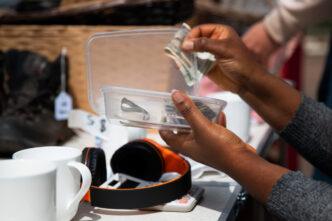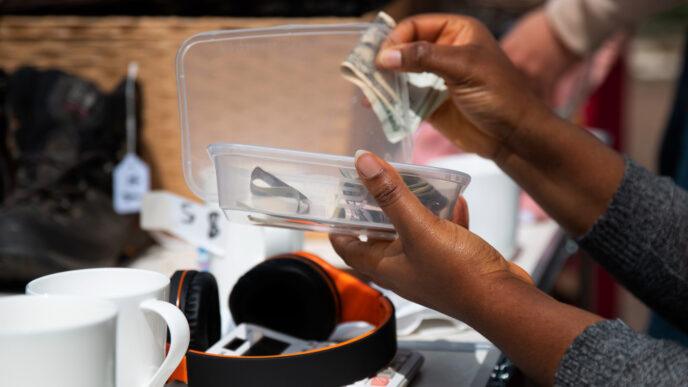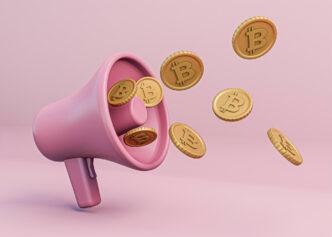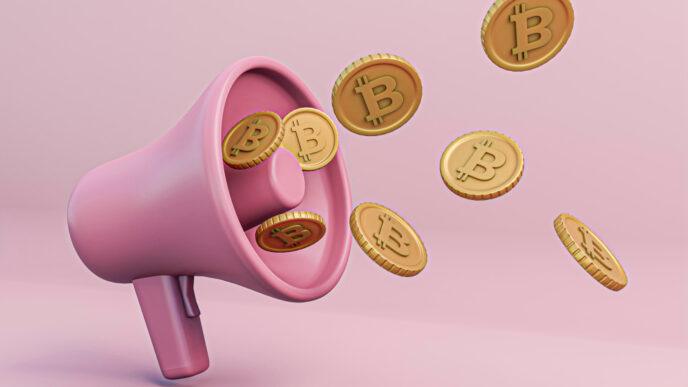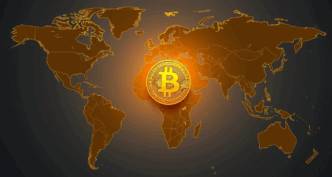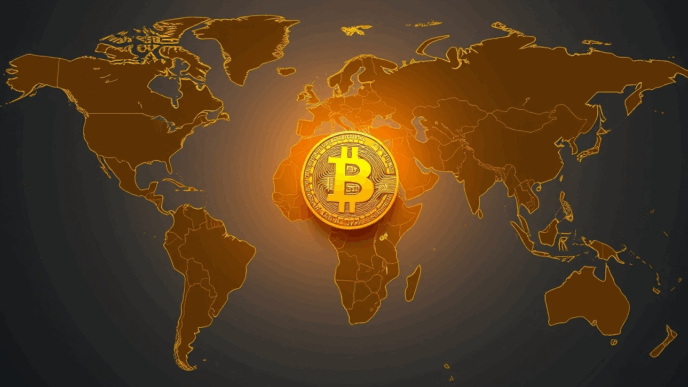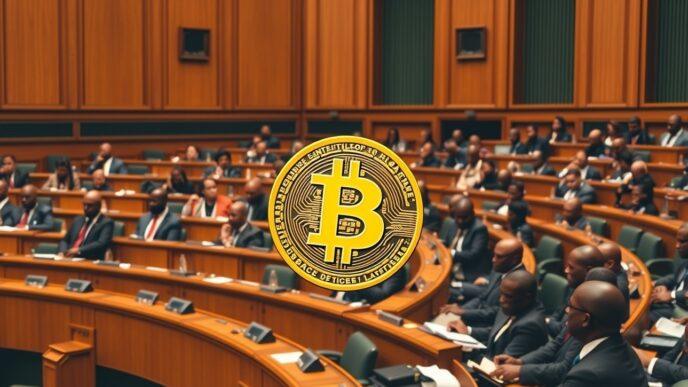There are about 358 million small and medium-sized enterprises (SMEs) worldwide. SMEs make up the largest portion of all businesses globally, building the backbone of the world economy.
These businesses are at risk to lose everything in an economic crisis as they depend on a functioning currency.
In the same way a business should never depend 100% on a single customer or supplier, it shouldn’t depend on a single currency. It’s a single point of failure that can take the entire business down, once it’s too late.
SMEs often run lean, focusing on daily operations, paying suppliers, meeting payroll, and keeping customers happy.
There is no time to think about macroeconomics or monetary theory. Business owners just stick to one currency—usually their local one, like USD, EUR, or YEN—because it feels simple and safe.
But this dependency hides risks that many SME owners don’t see coming and are woefully unprepared to handle. From sudden value drops to government grabs, relying on a single currency can turn a stable business into a sinking ship fast, and SMEs lack the resources big companies use to defend themselves.
Major currencies have been shedding purchasing power—since 2000, the USD has lost about 40%, the EUR 30%, and the YEN over 20% (Bureau of Labor Statistics, ECB, Bank of Japan).
For an SME, this means the cash on the account buys less every year—supplies cost more, but they can’t always raise prices to match. Unlike big firms with global accountants, SMEs don’t track this slow bleed, and if it ever hits hard—like in Weimar Germany’s 1923 hyperinflation, where money became worthless overnight—they’re caught flat-footed with no backup plan.
Then there’s the shock of outside forces. Governments can freeze or snatch your money, like in Greece’s 2015 crisis when ATMs capped withdrawals at 200 EUR a week, or Cyprus 2013, where savings over €100,000 were cut by up to 47.5%. SMEs don’t have legal teams or offshore accounts to dodge this—they’re stuck, unable to pay bills or staff. Bank failures, like Lehman Brothers in 2008 or Silicon Valley Bank in 2023, can lock up funds too, and without diversification, there’s no other cash to keep the lights on.
History backs this up—Argentina’s 2001 peso conversion cost MicroStrategy $1 million, and Venezuela’s bolívar collapse crushed businesses in the 2010s.
Austrian economists like Hayek and Mises warned that one government-run currency is a recipe for distortion and disaster (The Road to Serfdom), yet SMEs don’t read economic theory. They also don’t expect the EU debate about tapping savings for “strategic investments” debit their EUR reserves, but it could.
SMEs aren’t meant to run hedge funds with global arbitrage and risk strategies. They are meant to provide jobs and service customers. They simply can’t afford finance strategists and corporate tax lawyers to spot these risks—hyperinflation, bank runs, or government grabs sound like far-off problems until they’re not.
Relying on a single currency, business owners are betting everything on a single rope, and when it snaps, there’s no lifeline. Diversifying cash might seem complicated, but it’s less painful than losing it all to risks they didn’t see and can’t handle. One rope’s not enough when your business’s life is on the line.
Historic events clearly show that SMEs are the main losers during a currency reset. The fall of a currency typically happens within a few years and waiting to prepare can mean to lose one’s livelihood in a short period.
Below is a list of 45 reasons why small businesses are at risk, if they rely 100% on a single currency.
- Currencies Lose Value Over Time
- Explanation: Big currencies like the Euro (EUR), US Dollar (USD), and Japanese Yen (YEN) have lost a lot of their buying power. Since 2000, the USD has dropped about 40% (you need more dollars for the same stuff), the EUR about 30% since 1999, and the YEN over 20%. If your business only holds one, your cash buys less every year—your reserves are a melting ice cube.
- Conclusion: Your savings and profits lose real value, making it harder to pay bills or grow, leaving you with less than you planned.
- Source: Bureau of Labor Statistics (USD CPI), ECB (EUR inflation data), Bank of Japan (YEN CPI trends) – https://www.bls.gov/cpi/, https://www.ecb.europa.eu/stats/macroeconomic_and_sectoral/hicp/html/index.en.html, https://www.boj.or.jp/en/statistics/price/index.htm/.
- Savings Melt Away
- Explanation: Inflation (e.g., USD losing 8% in 2022) eats your savings if you only hold that currency, like ice melting in the sun.
- Conclusion: You’ve got less to reinvest or handle emergencies, threatening survival.
- Source: BLS, “CPI Inflation 2022” – https://www.bls.gov/news.release/cpi.nr0.htm.
- Only Hard Currency Boosts Customer Purchasing Power
- Explanation: A “hard” currency (e.g., gold-backed or stable like CHF) holds value better than weak ones like the bolívar. If you use it, customers’ money buys more, so they spend more with you instead of rivals with shaky cash.
- Conclusion: Sticking to one weak currency cuts what customers can spend, losing you sales.
- Source: Principles of Economics by Carl Menger (1871) – https://mises.org/library/principles-economics.
- Borrowing Costs Can Soar
- Explanation: If the central bank (e.g., Fed for USD) raises rates, loans in that currency get pricier. One currency means no escape from higher debt costs.
- Conclusion: You pay more to borrow, cutting into profits or forcing cuts elsewhere. Building on bitcoin, you may not need to borrow at all to invest.
- Source: Federal Reserve, “Rate Hike Announcements” (2022) – https://www.federalreserve.gov/monetarypolicy/fomcminutes20221214.htm.
- Customers Become Too Poor To Purchase
- Explanation: If your currency loses value, your client base will get poor over time. If they lose purchasing power they will buy less and less.
- Conclusion: You lose sales, your revenue declines
- Source: Mises Wire “How Central Banks Destroy Money’s Purchasing Power” (2020) – https://mises.org/mises-wire/how-central-banks-destroy-moneys-purchasing-power
- Hyperinflation Can Wipe Out Everything (Weimar Republic)
- Explanation: Picture prices doubling daily—in Germany’s Weimar crisis of 1923, a loaf of bread went from 3 marks to billions. Businesses with only marks saw their cash turn to nothing, unable to buy supplies or pay workers. Many SMEs didn’t make it through. Those who had gold and assets were better off.
- Conclusion: If your currency crashes hard, your business has no money to keep going, and you’re broke overnight with no backup.
- Source: The Downfall of Money by Frederick Taylor (2013) – https://www.goodreads.com/book/show/17349245-the-downfall-of-money.
- No Backup Plan (Single Point of Failure)
- Explanation: It’s like having one supplier—if they fail, you’re stuck. If your business only uses one currency and it tanks, you’ve got no other cash to fall back on, like a store with no stock.
- Conclusion: One failure wipes you out because you didn’t spread the risk, leaving your business helpless.
- Source: Basic risk management principles, Harvard Business Review – https://hbr.org/1994/11/a-framework-for-risk-management
- Banks Can Fail and Take Your Money (Lehman Brothers)
- Explanation: When Lehman Brothers went bust in 2008, businesses with money there lost access as the bank collapsed. If you only use one currency tied to a shaky bank, a failure can freeze or destroy your cash.
- Conclusion: Your business can’t pay bills or staff if the bank holding your only currency goes under, stopping everything.
- Source: Unraveling the Lehman Brothers – Michigan Journal of Economics (2024) – https://mjrsite.wixsite.com/mjreconomics/post/unraveling-the-lehman-brothers-crisis.
- Government Can Seize or Convert Your Cash (Argentina 2001-2002)
- Explanation: In Argentina’s 2001 crisis, the government forced businesses like MicroStrategy to switch USD to pesos, then slashed their value, costing $1 million. Your cash can be taken or cut by rules you can’t stop.
- Conclusion: You lose control of your money, and your business takes a huge hit with no way to fight back.
- Source: Michael Saylor’s interview with Tucker Carlson (2022) – https://www.foxnews.com/video/6316146149112.
- Exchange Rates Can Swing Wildly
- Explanation: If you sell abroad and only hold USD, a sudden drop against EUR (like 7.7% in 2021) means you get less for your goods—like your prices dropping without you choosing it.
- Conclusion: Your revenue shrinks unexpectedly, making it tough to cover costs or plan ahead. Utilize hard, liquid and global money like bitcoin.
- Source: ECB Annual Report 2021 – https://www.ecb.europa.eu/pub/annual/html/ar2021~48e8369633.en.html.
- Exposed to Boom and Bust Cycles
- Explanation: If you rely on fiat money, you’re automatically exposed to boom and bust business cycle inherent to the Keynsian economic model. If you have a backup like bitcoin, you can mitigate the impact.
- Conclusion: Your success is is tied to the economic cycle if you don’t build your business with sound money at its core.
- Source: Mises Wire 2023 – https://mises.org/mises-wire/how-prevent-boom-bust-business-cycle
- Customers Start Stealing If Currency Fails (Weimar)
- Explanation: In Weimar Germany, people’s savings vanished, so they stopped buying from shops and instead stole. If your only currency crashes, customers can’t afford your stuff.
- Conclusion: Sales dry up, and your business starves without income. On top, you might see your store get looted.
- Source: The Hyperinflation Crisis by Alpha History (2019) – https://alphahistory.com/weimarrepublic/hyperinflation-crisis/.
- Government Can Lock Your Money (Greek ATM Limits)
- Explanation: During Greece’s 2015 crisis, ATMs capped withdrawals at 200 EUR per week. If your business only had EUR, you couldn’t get enough cash to run daily operations.
- Conclusion: You’re stuck without enough money to pay workers or suppliers, grinding your business to a halt.
- Source: BBC News, “Greece debt crisis: ATMs run dry” (2015) – https://www.bbc.com/news/business-33305429.
- Savings Can Be Cut (Cyprus Haircut)
- Explanation: In Cyprus 2013, the government took up to 47.5% of bank savings over €100,000 to bail out banks. If your business only had EUR there, you lost nearly half your cash.
- Conclusion: Your reserves get slashed, leaving you short for emergencies or growth.
- Source: Reuters, “Cyprus bailout: Bank depositors to take a hit” (2013) – https://www.reuters.com/article/us-cyprus-bailout-idUSBRE92F00D20130316/.
- No Safety Net Against Loss
- Explanation: Holding one currency is like putting all your eggs in one basket—if it drops, you lose everything with no other cash or asset to hedge the blow.
- Conclusion: A single loss can bankrupt you without a fallback plan.
- Source: Investopedia, “Diversification” – https://www.investopedia.com/terms/d/diversification.asp.
- Wars or Politics Can Tank It (Geopolitical Risk)
- Explanation: Russia’s ruble crashed after 2022 sanctions. If your only currency is tied to a country in trouble, it can collapse from things you can’t control.
- Conclusion: Your business’s money vanishes due to events far away, leaving you powerless.
- Source: Bloomberg, “Ruble Plunges as Sanctions Bite” (2022) – https://www.bloomberg.com/news/articles/2022-02-28/ruble-plunges-to-record-low-as-sanctions-hit-russian-economy.
- Suppliers Say No
- Explanation: Weimar suppliers refused marks, demanding foreign cash. If your only currency’s weak, they won’t sell to you.
- Conclusion: No supplies mean no products, closing your doors.
- Source: The Downfall of Money (2013) – https://www.goodreads.com/book/show/17349245-the-downfall-of-money.
- Suppliers Can Get Hit Too
- Explanation: If your suppliers use the same failing currency (e.g., Weimar marks), they can’t deliver, stopping your supply chain.
- Conclusion: No supplies mean no products to sell, shutting down your business. Economists call this “negative externalities”.
- Source: Deutsche Inflation 1914 bis 1923 (Wikipedia) – https://de.wikipedia.org/wiki/Deutsche_Inflation_1914_bis_1923.
- No One Wants It (Liquidity Trap)
- Explanation: In Zimbabwe’s 2008 crisis, no one accepted the local dollar, so businesses couldn’t spend it. A single currency can become useless if trust vanishes.
- Conclusion: You’re stuck with cash no one takes, freezing your operations.
- Source: IMF, “Zimbabwe Hyperinflation” (2008) – https://www.imf.org/external/pubs/ft/survey/so/2008/CAR092308A.htm.
- Currency Attacks by Traders
- Explanation: Big investors (e.g., Soros vs. GBP in 1992) can crash a currency’s value. If that’s your only one, your money shrinks fast.
- Conclusion: Your reserves lose value from outside forces, hitting your bottom line hard.
- Source: The Alchemy of Finance by George Soros (1987) – https://www.goodreads.com/book/show/369486.The_Alchemy_of_Finance.
- Lack of Strong Industry Bond
- Explanation: The Hanseatic League, a medieval trade network, thrived by building tight alliances across cities and merchant routes. Partnerships provided safety and a strong currency, which helped to protect against enemies.
- Conclusion: Without a currency you and your alliances can rely on, you’ll be pray for competitors or even enemies.
- Source: The Hanseatic League by Philippe Dollinger (1970) – https://www.goodreads.com/book/show/2593567-the-hanseatic-league.
- Can’t Switch Gears
- Explanation: With one currency, you’re stuck even if a better one appears—like keeping an old phone when everyone upgrades.
- Conclusion: You miss out on stability or gains, weakening your position. Adopt early to stay competitive.
- Source: Entrepreneur Magazine, “Business Flexibility” – https://www.entrepreneur.com/article/237668.
- Illegal Trades Forced (Black Market)
- Explanation: In Argentina’s crisis, businesses used the “blue dollar” illegally to survive. One currency can push you into risky deals.
- Conclusion: You face fines or jail, damaging your business legally and financially.
- Source: Bloomberg, “Argentina Blue Dollar” (2020) – https://www.bloomberg.com/news/articles/2020-10-21/argentina-s-blue-dollar-soars-to-record-high.
- Missing Better Options
- Explanation: If USD drops but EUR rises, you’re stuck losing while others gain—like passing up a sale for your goods.
- Conclusion: You miss profits or safety, putting you at a disadvantage.
- Source: Investopedia, “Opportunity Cost” – https://www.investopedia.com/terms/o/opportunitycost.asp.
- Whole System Can Crash (SVB)
- Explanation: Silicon Valley Bank’s 2023 failure froze funds for businesses using only USD there. A single currency ties you to its system’s fate.
- Conclusion: Your cash gets locked or lost in a bank crash, stopping your business dead.
- Source: CNN, “SVB Collapse” (2023) – https://www.cnn.com/2023/03/10/business/svb-collapse-explained.
- It’s Not Legal Anymore
- Explanation: Germany ditched the Papiermark for the Rentenmark in 1923. If your currency’s replaced, it’s suddenly trash.
- Conclusion: Your reserves become useless, leaving you broke.
- Source: Hyperinflation in the Weimar Republic (Wikipedia) – https://en.wikipedia.org/wiki/Hyperinflation_in_the_Weimar_Republic.
- Staff Quit
- Explanation: If your currency’s worthless (e.g., Weimar), workers leave for better-paying jobs, disrupting your team.
- Conclusion: You lose key people, slowing or stopping your work.
- Source: Weimar Republic – Nazi Rise (Britannica) – https://www.britannica.com/place/Germany/The-Weimar-Republic.
- Can’t Trade Globally
- Explanation: A weak YEN in 2022 made Japanese exports cheap but imports costly. One currency limits your global reach.
- Conclusion: You lose trade deals or pay more, hurting profits.
- Source: Bank of Japan, “Yen Weakness” (2022) – https://www.boj.or.jp/en/announcements/release_2022/rel220928a.htm/.
- Investments Tank
- Explanation: Bonds in a failing currency (e.g., Greek debt 2010s) lose value. One currency ties your investments to its fate.
- Conclusion: Your growth money shrinks, limiting future plans.
- Source: ECB, “Greek Debt Crisis” (2015) – https://www.ecb.europa.eu/press/key/date/2015/html/sp150219.en.html.
- Cut Off From Neighbors
- Explanation: If Europe ditched a failing currency post-Weimar, businesses stuck with it couldn’t trade regionally.
- Conclusion: You’re isolated, losing markets and partners.
- Source: Economic History Association (EH.net) – https://eh.net/encyclopedia/german-hyperinflation-of-the-early-1920s/.
- No Way to Hedge
- Explanation: With one currency, you can’t protect against price swings—like not having insurance for your shop.
- Conclusion: You take full hits from changes, risking big losses.
- Source: Investopedia, “Hedging Basics” – https://www.investopedia.com/terms/h/hedge.asp.
- Taxes Can Jump
- Explanation: A desperate government (e.g., Venezuela 2018) might hike taxes on a failing currency’s use, raising your costs.
- Conclusion: If you rely on easy money, you lose more money to taxes, cutting into what keeps you running.
- Source: Reuters, “Venezuela Tax Hikes” (2018) – https://www.reuters.com/article/us-venezuela-economy/venezuela-hikes-taxes-idUSKCN1L31K8/.
- Betting Against Empiric Evidence
- Explanation: Venezuela’s bolívar crashed in the 2010s, killing businesses with no other cash. Data doesn’t lie, hyperinflations can occur in any fiat system.
- Conclusion: You’re betting against history, likely to lose everything.
- Source: IMF, “Venezuela Hyperinflation” (2018) – https://www.imf.org/en/News/Articles/2018/07/23/na072318-venezuela-inflation; Hanke and Krus World Inflation and Hyperinflation Table – https://www.cato.org/research/world-inflation-and-hyperinflation-table
- At Government’s Mercy
- Explanation: Germany’s 2020s talks about using citizens’ savings for national projects (e.g., green energy) hint at government tapping private funds. If you only hold EUR, they could take yours.
- Conclusion: Your cash gets grabbed for big plans, leaving you short.
- Source: Deutsche Welle, “Germany Savings Debate” (2023) – https://www.dw.com/en/germany-savings-for-climate-investment/a-64512345.
- Austrian Economics: Currency Monopoly Fails
- Explanation: Austrian thinkers like Hayek say one currency run by a government messes up prices and crashes economies.
- Conclusion: You’re tied to a flawed system that’s doomed to fail, sinking your business.
- Source: The Road to Serfdom by F.A. Hayek (1944) – https://www.goodreads.com/book/show/299215.The_Road_to_Serfdom.
- Competitors Outmaneuver You
- Explanation: Rivals using multiple currencies can dodge a crash you’re stuck in, taking your customers.
- Conclusion: You lose market share, weakening your business.
- Source: Harvard Business Review, “Competitive Strategy” – https://hbr.org/1980/05/competitive-strategy.
- Insurance Costs Rise
- Explanation: If your currency’s risky (e.g., Bitcoin), insuring assets gets pricier to cover potential losses.
- Conclusion: Higher bills cut your profits, straining your budget.
- Source: Insurance Journal, “Crypto Risk Costs” (2022) – https://www.insurancejournal.com/news/national/2022/06/15/672345.htm.
- Partners Doubt You
- Explanation: A shaky currency (e.g., YEN’s 2022 drop) makes suppliers or lenders question your stability.
- Conclusion: They pull deals or charge more, raising your costs.
- Source: Bank of Japan, “Yen Impact” (2022) – https://www.boj.or.jp/en/announcements/release_2022/rel220928a.htm/.
- Cash Becomes a Liability
- Explanation: In Weimar, holding marks was a liability as they lost value daily. One currency can turn your cash into a problem.
- Conclusion: Your money drags you down instead of helping, risking ruin.
- Source: The Downfall of Money (2013) – https://www.goodreads.com/book/show/17349245-the-downfall-of-money.
- Global Crises Hit Harder
- Explanation: The 2008 Lehman crash hit USD businesses worse if they had no other cash to lean on.
- Conclusion: You take bigger losses in a worldwide mess, with no cushion.
- Source: Global Impact of the Collapse – Harvard Business School – https://www.hbs.edu/faculty/Pages/item.aspx?num=36484.
- Trade Terms Worsen
- Explanation: A weak currency forces worse deals with foreign partners demanding stronger money.
- Conclusion: You pay more or sell less, shrinking your margins.
- Source: ECB, “Greek Crisis Trade Effects” (2015) – https://www.ecb.europa.eu/press/key/date/2015/html/sp150219.en.html.
- Legal Risks Grow
- Explanation: Using a single currency, if restricted (e.g., Argentina’s capital controls) might push you into gray areas to survive, like tax evasion.
- Conclusion: You face oppression or fines, draining your resources.
- Source: Bloomberg, “Argentina Currency Controls” (2020) – https://www.bloomberg.com/news/articles/2020-09-15/argentina-tightens-currency-controls.
- Innovation Stalls
- Explanation: With cash losing value (e.g., Venezuela), you can’t fund new ideas, features or upgrades, falling behind.
- Conclusion: Your business gets outdated, losing to competitors.
- Source: IMF, “Venezuela Economic Decline” (2018) – https://www.imf.org/en/News/Articles/2018/07/23/na072318-venezuela-inflation.
- Mental Stress Mounts
- Explanation: Watching your only currency fail (e.g., Weimar despair) stresses you and your team, clouding decisions. If you have a redundancy plan, you can stay calm and focused.
- Conclusion: Bad calls from panic can hurt your business even more during times of distress.
- Source: The Downfall of Money (2013) – https://www.goodreads.com/book/show/17349245-the-downfall-of-money.
- Reputation Takes a Hit
- Explanation: Sticking to a failing currency signals poor planning, scaring off customers and investors.
- Conclusion: Your business looks weak, losing trust and opportunities.
- Source: Forbes, “Business Reputation” (2021) – https://www.forbes.com/sites/forbescoachescouncil/2021/03/04/why-reputation-matters/.
A single point of failure only becomes a problem when it’s already too late. If small businesses want to improve their strategy, they should consider their currency setup.
Relying on only one monetary technology or the government provider is too risky in times of economic turmoil. Having alternative options ready, acquiring knowledge and testing features is a key to stay ahead and fit in a competitive and dynamic market environment.
As a small business, utilizing bitcoin offers many benefits. As a reserve asset it protects the profits from losing value. By accepting bitcoin online and in physical stores a business signals innovation and educates the customer base, partners and suppliers. In recent years, economic policy around the world has become less stable and more and more arbitrary and unpredictable. By building a community of partners who are knowledgeable about bitcoin, a business can leverage their local network to create a ‘bitcoin hanse’. A merchant republic based on anti-fragile money.







